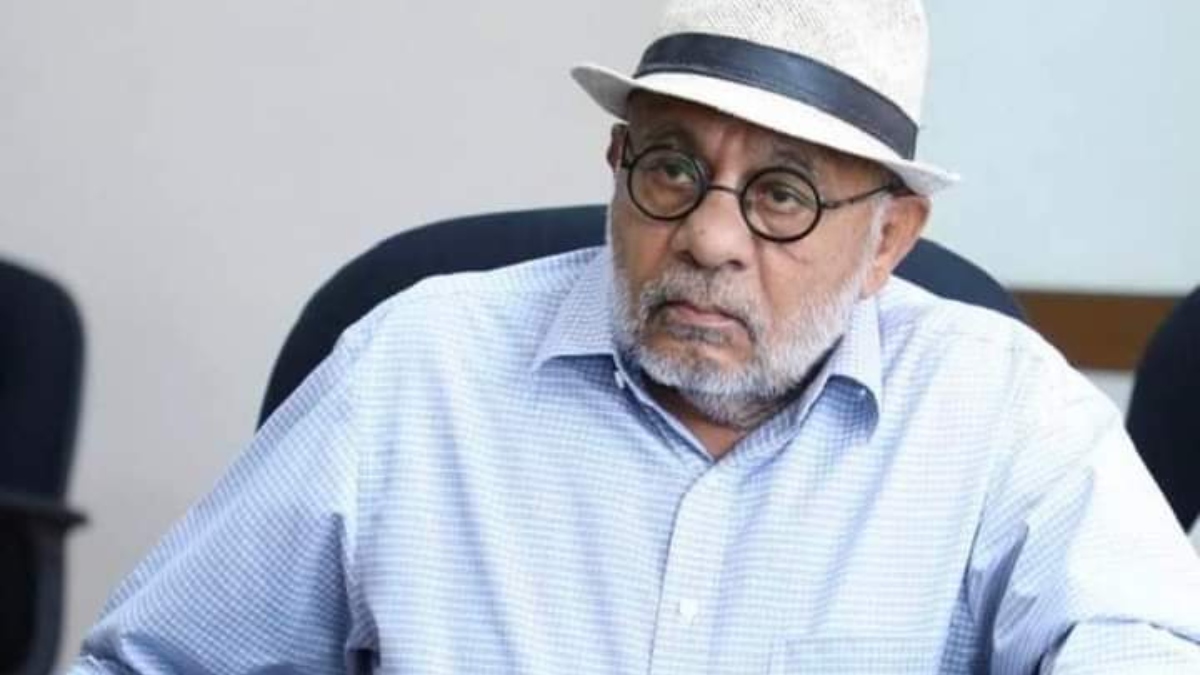Julie and Ted Driver didn't attend pop band OneRepublic's concert Aug. 9 that christened the new 8,000-seat, outdoor Ford Amphitheater on Colorado Springs' far north side. That doesn't mean they didn't hear the music, however.
The Drivers live off Roller Coaster Road and Mountain Pine Lane in unincorporated Black Forest, 4.4 miles northeast of the amphitheater's location southwest of North Gate Boulevard and Voyager Parkway, according to a Google map estimate of the distance between their home and the venue. The couple had followed the amphitheater's progress since it was proposed 11⁄2 years ago and was ready for opening night.

After OneRepublic took the stage, the Drivers stepped outside their home to determine if they could hear anything. "We knew this was going to be the big opening night, so we were kind of preparing for it," Julie said. "We wanted to see what we could hear; we were kind of nervous about that.
And we did. We stepped out and we were like, 'Oh, my Lord, we can hear it way clearer than we expected.' "We listened to it for a while, then we came back inside," she said.
"Then we closed our windows to see how much of it came through. We could hear, it wasn't like overwhelmingly loud, but we could still hear the bass notes and everything, even through the closed windows ..
. There was no escape from that." Some nearby residents, though, sought to embrace — not escape — the amphitheater.
"You guys sound like the old curmudgeons from 'Footloose,'" one commenter on the Next Door Digest social media app, who identified herself as a resident of the Greyhawk neighborhood less than 1 mile northeast of the amphitheater, said of critics. "It’s music. It’s not every night.
It’s not that loud. And people are having fun." Less than 10 days since its debut, the Ford Amphitheater has received mixed reviews.
For sure, it's earned the equivalent of standing ovations from concertgoers, community members and civic leaders; in social media posts and public comments, they've applauded the amphitheater as an exciting open-air venue for live music that offers top-drawer amenities — including luxury fire-pit suites — set against a scenic mountain backdrop. JW Roth, the founder, chairman and CEO of VENU, the Colorado Springs-based entertainment company formerly known as Notes Live and developer of the $90 million amphitheater, said OneRepublic's Friday, Saturday and Sunday shows last weekend drew sold-out crowds of 8,000 each night. And those concertgoers couldn't be happier, he said.
"We had 24,000 people who loved it," Roth said. Through Wednesday of last week, city of Colorado Springs officials reported they had received nearly 170 noise complaints about the Ford Amphitheater. Hundreds of similar complaints were posted on multiple threads on Next Door Digest and other social media sites.
Roth, however, believes the number of complaints received by the city is misleading. Some people filed multiple reports, which inflated the overall total of city complaints that he contends was closer to around 65. He also questioned the authenticity of some complaints; a few came from areas as far south as Colorado Springs' southeast side, which Google Maps shows is about 20 miles from the amphitheater.
City Council President Randy Helms, who lives in the Northgate area north of the amphitheater and supported its development, said he spent four to five hours last Friday, Saturday and Sunday nights to drive and walk around nearby neighborhoods as well as in Black Forest. He used an app on his phone to measure noise levels, listened to the sound from the amphitheater as well as from passing cars and spoke with neighborhood residents without explaining what he was doing or identifying himself as a councilman. Acknowledging his measurements and findings were anecdotal, Helms nevertheless said he got nothing but positive vibes from passers-by, while the amphitheater never seemed bothersome.
"I'm trying to be objective and there are some occasions when the music is loud," Helms said. "But for the most part, 90% of the time, I don't think it was annoying or intrusive or any of that." That's no doubt difficult for some homeowners and apartment dwellers to fathom.
Several complaints filed with the city or posted on social media sites came from nearby neighborhoods such as Greyhawk, Flying Horse, Northgate Estates and Northgate Highlands, according to an informal Gazette analysis that used El Paso County Assessor's Office data and other online sources to verify and plot addresses of commenters. Other complaints came from outlying neighborhoods miles away, with unincorporated Gleneagle to the north and Black Forest to the north and northeast being some of the areas with multiple reports of excessive noise. Von, who along with her husband, Lynn, live in a Black Forest neighborhood southeast of Baptist Road and Tari Drive that's 41⁄2 miles from the amphitheater, posted on Next Door Digest that the couple could hear music on opening night inside their house — and over the sound of their TV.
"I was annoyed and angry because one of the reasons we moved out here was to be in the forest and enjoy the peace and quiet," Von said in an interview with The Gazette; her last name isn't being used at her request. "We can hear some traffic noise some days that's worse than others. We can hear the owls hooting and all the sounds of nature.
Now they've thrown music into it. And we don't want to hear that." Julie Driver echoed that sentiment.
"It was annoying and irritating because we moved out here in '93 to this rural area to escape city noise and that kind of stuff," she said. "And so we were pretty irritated by it. We knew that it was going to be a problem when they first proposed the amphitheater.
" The conflicting views over the amphitheater shouldn't come as a surprise. In January 2023, the Colorado Springs City Council overwhelmingly approved the amphitheater, which was built at Polaris Pointe, a nearly 15-year-old, 200-acre mixed-use project ringed by residential areas. Over the last several years, Polaris Pointe's developer had shifted its focus from traditional retail and restaurant uses to entertainment concepts.
At the time the City Council considered the amphitheater, opponents said they feared thousands of concertgoers would create traffic and parking problems in nearby areas. But they especially worried about the potential for unwanted noise. A nearby resident and homeowners' group sued VENU and the city in September, alleging sound and noise from the amphitheater would violate the state's Noise Pollution Law and create a "public nuisance" and "noisy monstrosity.
" That suit was dismissed in January; an appeal is pending. As part of the City Council's approval of the project, VENU implemented a series of noise mitigation measures that were intended to tamp down unwanted sound and alleviate concerns. They included construction of a 28-foot-tall wall at the east end of the venue's seating area to block noise, which reaches to 50 feet tall in its center.
The wall will be replaced by a restaurant, bar and event center complex now under construction and targeted to open next year; that complex also would serve as a noise barrier, VENU officials have said. A cluster of secondary speakers was installed to serve the lawn seating area so that stage speakers didn't need to drive sound to the far reaches of the amphitheater seating areas and toward neighborhoods. Also, the City Council required installation of two sound monitoring devices along Voyager Parkway and North Gate Boulevard.
The devices connect to the amphitheater’s sound management system and give the facility's management control over decibel levels and the ability to adjust them as needed. Regardless of those measures, noise remains a tricky thing and can be difficult to control, experts say. It can travel for miles and be affected by weather and other factors.
For example, noise will drift farther in humid conditions, said Sam Milazzo, a teaching professor of physics at the University of Colorado Colorado Springs. That would account for reports of Black Forest residents hearing music from the amphitheater several miles away; on opening night Aug. 9, skies were overcast and there was moisture in the air after on-and-off showers that day.
Driver, the Black Forest resident who said she and her husband could hear amphitheater music on opening night, said they couldn't hear it the next two nights when skies were much clearer — though a fireworks show from the facility still was audible. Lower-frequency bass music — such as what the Drivers heard on opening night with their windows shut — also will travel farther than higher frequency sounds, Milazzo said. Wind, meanwhile, can carry sound over long distances, said Jeff Kwolkoski, president and senior acoustical engineer of Wave Engineering , a Littleton-based acoustics, noise and vibration consultant.
A temperature inversion — a layer of cooler air at ground level and warm air above — also can allow sound to travel greater distances, he said. Temperatures on Aug. 9 had dropped into the upper 50s by the time the OneRepublic concert started, according to measurements taken for that day at the Colorado Springs Airport.
Buildings and other physical barriers can shield someone from sound or impact how it's heard, he said. Homeowners who stand in one spot in their yard might hear something they wouldn't hear on the far side of their house, which could block or disrupt the sound. Sound also can travel more easily to homes or buildings that are at higher elevations and are perched above a business or venue that generating noise, Kwolkoski said.
Weather and physical factors aside, Kwolkoski said individual sensitivities play a big role in whether someone believes they're being impacted by noise. Two people with good hearing and who hear the same sound could react differently to it, he said. "Some people may not even notice (the sound) that much," Kwolkoski said.
"Others, it may bother them a lot because of their individual sensitivity." And some people will be upset even if businesses are within noise limits put in place by local and state governments, he added. "It's not unusual at all to get complaints of noise, whatever the source of that noise is, when the noise is within the legal limit," Kwolkoski said.
"It doesn't make everybody happy." Colorado Springs' municipal code limits noise to 50 decibels in residential areas between 7 p.m.
and 7 a.m. A noise level chart produced by the Virginia-based American Academy of Audiology describes 50 decibels as comparable to a moderate rainfall.
VENU, however, was granted a noise hardship permit from Colorado Springs that authorizes the amphitheater to exceed city noise limits for its events — an explanation that city officials sent to multiple residents who complained about excessive noise. Also, when the City Council approved the amphitheater in January 2023, it agreed to allow noise levels measured from inside the amphitheater to reach as high as 110 decibels once during a five-minute period and average 105 decibels during any five-minute period. The Audiology Academy describes 110 decibels as a "very loud" level produced at concerts, sporting events and by car horns .
Lower frequency bass sounds measured inside the amphitheater also are permitted to reach a maximum of 125 decibels once during a five-minute period and average 115 decibels during that same time. Sound levels recorded during the OneRepublic concerts last weekend never exceeded those limits approved by the City Council, Roth said. His company's measurements were captured by New York-based LSTN Consultants, which VENU had hired to prepare a noise assessment when it was seeking City Council approval of the amphitheater in 2023.
At least one Colorado Springs city code enforcement officer was present at the amphitheater during the OneRepublic concert Aug. 9 and sound levels that the officer recorded also didn't exceed limits set by the City Council, said city spokeswoman Vanessa Zink. Ford Amphitheater noise level data compiled by the city code enforcement office is considered to be part of an "active investigation" and won't be released until measurements are taken at multiple concerts over several weeks, Zink said.
There's no timetable for the information's release, she added. In addition to sound levels inside the amphitheater that remained below city limits, Roth said readings taken by consultant LSTN from VENU's two noise monitoring stations outside the facility also showed "no significant increase in noise levels on show days compared to typical days." In effect, Roth said, noise outside the amphitheater was no different than the immediate area's typical ambient noise from cars, trucks and motorcycles.
But based on what they've heard at their homes, some area residents upset by amphitheater noise probably will put little value in the readings recorded by Roth's consultant or city code enforcement officers. Louis Hoffman, a licensed psychologist for more than 20 years and who's lived in the Northgate area north of the amphitheater since 2015, said he goes to bed early and rises early and is sensitive to noise; sound from the amphitheater prevented him from sleeping even though his windows were closed, he said in a Next Door Digest post. In an interview with The Gazette, Hoffman said he's not focused on his particular situation; instead, he's more concerned about others who could be affected by noise.
Among them, he points to veterans who might suffer from post-traumatic stress disorder, children and adults with attention-deficit/hyperactivity disorder, children who meet the criteria for autism spectrum disorder and adults who suffer from physical disorders such as tinnitus, which is often described as a ringing sound, and misophonia, a type of noise sensitivity. Based on prevalence rates from the Centers for Disease Control and the National Institute of Mental Health, Hoffman estimates there could be more than 7,000 people within a 3-mile radius of the amphitheater site who are part of those vulnerable groups and who could be affected by excessive noise from the venue. The city, Hoffman said, owes it to those people and other residents to address what he calls the obtrusive noise from the amphitheater.
"To just say we're not going to care or it's not significant that these vulnerable populations are being impacted by the noise, to me, is very insensitive and it's not what we want our city to represent," Hoffman said. If the city and VENU, as the amphitheater's owner, disregard the facility's possible impacts, they have an obligation to fund independent research that examines the effects noise might have on the community, Hoffman said. Beyond that, and knowing the amphitheater won't be torn down, Hoffman suggested that enclosing it might be the best solution for everyone.
Roth acknowledged that fireworks shows that took place at the amphitheater during its opening weekend bothered many people. Going forward, he said he'll limit those shows to special occasions, such as the Fourth of July. But he bristled at the idea of enclosing the amphitheater.
"You're talking about $100 million to enclose something like that," Roth said. "And then it would ruin it. This is an outdoor amphitheater.
I could build a hockey arena if I was going to enclose it. That's what the (Broadmoor) World Arena is. It's a hockey arena.
"I build outdoor amphitheaters," he said of his company, which has multiple music venues planned in other cities. "That's the most vibrant way to enjoy music in the world. The No.
1 leisure activity in the world today is live, outdoor music. So, I would never consider enclosing it ..
. That's like enclosing your backyard. Nobody encloses their backyard.
They have a backyard because they like to sit outside." Colorado Springs Mayor Yemi Mobolade said his administration expected complaints and will take them seriously. "That's somebody's personal experience; you can't argue against their story," he said.
And yet, his office has received conflicting comments; some people said they heard noise miles away and were angry, while others heard nothing or very little and welcomed the amphitheater with open arms. Mobolade said he's been committed to "data-driven government" as mayor. So, he'll rely on reports being compiled by city code enforcement officers over at least a few weekend concerts, as well as information assembled by Roth's consultant, to gauge amphitheater noise levels and determine whether problems exist.
"Part of my job as mayor is to balance competing interests," Mobolade said. "For as many of those (noise) complaints that are coming in, there's an overwhelming amount of support, too, that's coming in for the amphitheater.".



















